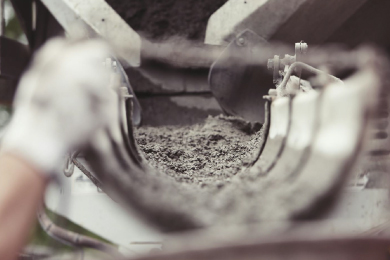"It's common knowledge that the UK is falling behind Europe when it comes to decarbonising our homes."This statement, from the Centre for Net Zero, an independent research unit, reported in this BBC article, is bang on the money.
Nowhere is this shortfall clearer than in the adoption (or lack of) of heat pumps. Heating in UK homes produces 18% of the country's greenhouse gas emissions, and the Government has set itself a goal of 600,000 low-carbon heat pump installs annually by 2028, in an effort to tackle the issue.
But the reality is that only 55,000 heat pumps were sold – let alone installed - in the UK in 2022 (the last year for which figures are available). And though many factors have led to this situation, a significant slice of the narrative – even amongst the ‘experts’ - is still getting the causes wrong.
Here’s our take on the issue.
What’s hampering heat pumps?
Firstly, let’s look at a couple of the points the BBC article raises, based on a report from the National Audit Office (NAO), which we believe are valid, and what their repercussions are.
Limited public awareness of the technology
Whilst this point stands, it doesn’t go far enough. There’s not only limited awareness of heat pumps and their benefits, there’s also misinformation circulating about their operation and effectiveness that borders on the wilful!
To illustrate the initial point, the Government’s Spring 2023 DESNZ Public Attitudes Tracker, for example, reveals that 59% of respondents didn’t cite low-carbon heating systems as a factor they believed likely to mitigate climate change. Heat pumps are nowhere in their thinking, so the message is clearly not getting through.
To illustrate the further point, popular myths about heat pumps stubbornly persist in the media and other public commentary. As we discussed in an earlier article, heat pumps are often accused of not heating effectively (not true), being unable to work in older properties (also not true), and incapable of functioning in cold climates (strange, as in chilly Norway 60% of homes are equipped with them!)
Lack of financial support for households
This is a huge disincentive for homeowners to adopt heat pumps.
Because although the Boiler Upgrade Scheme grant for people in England and Wales, which funds heat pump installation, has now increased to £7,500, in reality this is often simply too little to cover the full cost.
In particular, where renovations to the property are needed to accommodate the pumps or enable them to work effectively, the grant can end up being little more than a drop in the ocean.
For larger properties, where the installation costs alone can be up to £35,000, the grant is especially feeble.
And another condition – that the property must obtain a valid Energy Performance Certificate (EPC) before heat pumps can be installed – adds still more expense that isn’t covered by the grant.
Lowering prices, cheapening the concept
The Government has come up with a response, but the worrying thing is that it hasn’t taken the form of a sensible attempt to increase or improve the grant, but instead fundamentally waters down the scheme’s environmental credentials.
The Government has now removed the previous grant requirement for homes to be insulated before the pumps can be installed – thus reducing the pumps’ energy efficiency and carbon reduction capability once they’re in situ.
This substantially undermines the whole point of the exercise, and potentially puts the country even further away from its legal obligation to reach net zero by 2050.
Heat pumps vs. gas: false assumptions
But the point in the article that demonstrates how even those who should know better are still in the dark about the effectiveness of heat pumps is the assertion that heat pumps incur “higher costs relative to gas boilers”.
This is a statement of such sweeping generality that it’s difficult to choose where and how to debunk it first! To get us started, let’s revisit some important qualifying points that we explored in another earlier article.
Firstly, you can power heat pumps from surplus electricity generated in your building, using photovoltaic solar panels and similar. You are paying nothing for that power, whereas you can’t manufacture your own gas.
Secondly, heat pumps generate far more heat than the electricity used to power them. The seasonal coefficient of performance, which measures efficiency of heat out versus energy in, averages 350-400% for a heat pump, compared to just 90-94% for a gas boiler. This means that, like for like, you will run the pumps for a much shorter time than you would a gas boiler, which obviously costs less.
And thirdly, unlike gas boilers, heat pumps work extra-efficiently with higher outside temperatures, so if you have summer hot water and heating loads the pumps pay back much quicker than gas.
Pumps alone are no panacea
All that aside, however, we standby what we’ve said many times before: that simply installing a heat pumps wherever it seems easiest is often the easiest way to ensure they don’t deliver on energy efficiency and carbon reduction expectations.
The key to ensuring heat pumps work well is making sure they are designed and installed correctly for the size and characteristics of the building, and this entails detailed modelling of the building’s thermal behaviours, ventilation, airflow, and any existing energy-saving technologies or devices in use.
Get this wrong, and the heat pumps can end up working inefficiently, sending consumption, costs, and carbon up, not down.
Reason enough, if any were needed, to get a true expert involved.
Get in touch to find out more about how we can help you decarbonise your building, and transition cost-effectively to lower energy consumption and a net zero planet.





.png)




